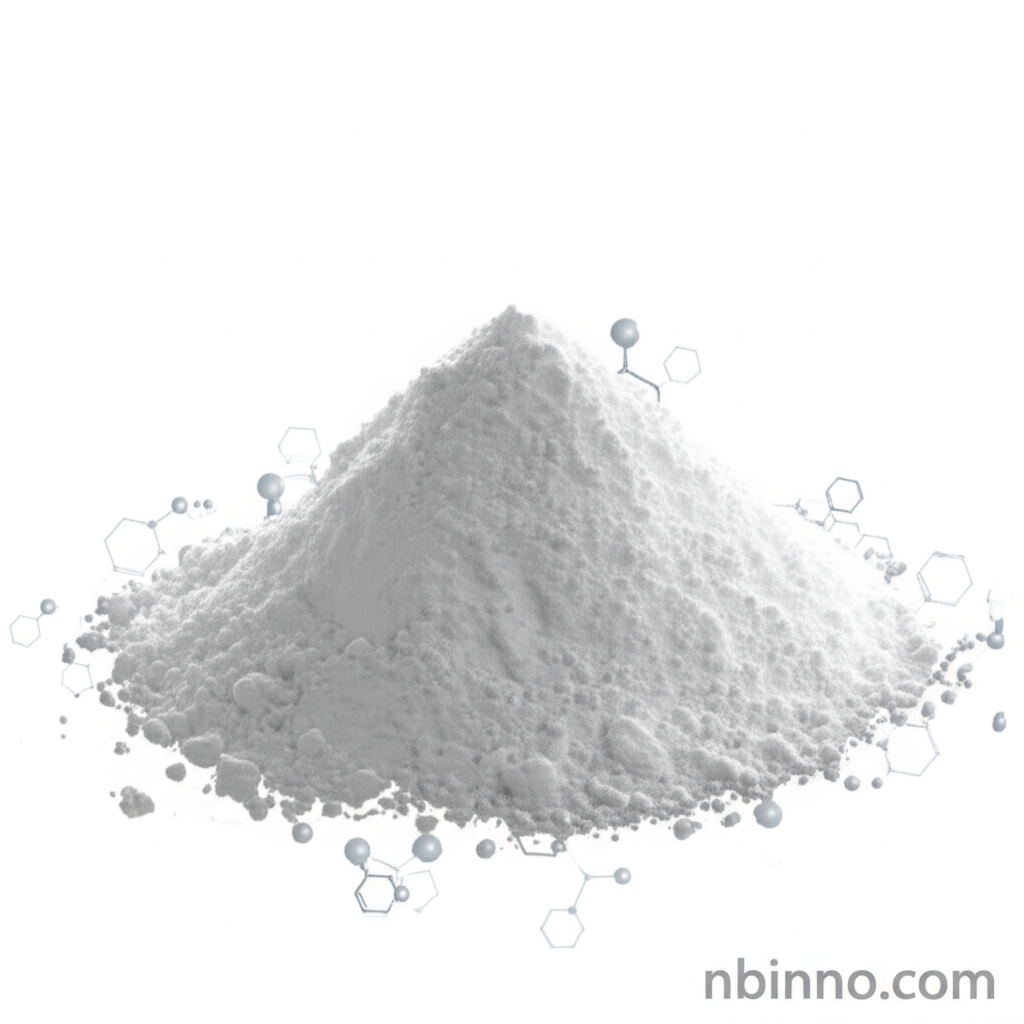Sulbactam Powder: Enhancing Antibiotic Power
Discover the key role of Sulbactam powder in combating bacterial resistance and boosting antibiotic effectiveness.
Get a Quote & SampleProduct Core Value

Sulbactam Powder
Sulbactam Powder serves as a critical pharmaceutical intermediate, primarily functioning as an irreversible competitive beta-lactamase inhibitor. Its unique ability to neutralize beta-lactamase enzymes, which are often produced by bacteria to degrade antibiotics, makes it an indispensable component in enhancing the efficacy of beta-lactam antibiotics. By preventing the enzymatic destruction of antibiotics like penicillins and cephalosporins, Sulbactam effectively expands their antibacterial spectrum and overcomes resistance mechanisms, making it a vital agent in treating a wide array of bacterial infections.
- Sulbactam powder antibiotic function is crucial in protecting antibiotics from bacterial enzymes, ensuring their therapeutic action.
- Experience enhanced treatment outcomes by understanding the sulbactam sodium beta-lactamase inhibitor properties.
- Ensure optimal treatment with pharmaceutical grade sulbactam powder, vital for drug formulations.
- Explore the diverse sulbactam for injection uses, from intra-abdominal to skin infections.
Key Advantages
Overcoming Antibiotic Resistance
Sulbactam powder acts as a powerful shield, preventing bacteria from inactivating antibiotics through beta-lactamase production, thus addressing the growing challenge of antibiotic resistance.
Broadened Antibacterial Spectrum
By inhibiting beta-lactamase, Sulbactam enables a wider range of antibiotics to effectively target both Gram-positive and Gram-negative bacteria, including resistant strains.
Synergistic Therapeutic Effects
The combination of Sulbactam with antibiotics like ampicillin creates a synergistic effect, leading to more potent antibacterial activity and improved patient outcomes in managing complex infections.
Key Applications
Bacterial Infection Treatment
Sulbactam is essential in treating moderate to severe bacterial infections such as skin and soft tissue infections, intra-abdominal infections, and gynecological infections.
Antibiotic Augmentation
Its primary role is to augment the effectiveness of beta-lactam antibiotics, making them active against bacteria that would otherwise be resistant.
Enzyme Inhibition in Pharmaceuticals
As a key pharmaceutical intermediate, it's used in the formulation of combination drugs, leveraging its enzyme inhibiting properties.
Management of Resistant Strains
Crucial for managing infections caused by beta-lactamase-producing bacteria, including specific strains of Staphylococcus aureus and Escherichia coli.
